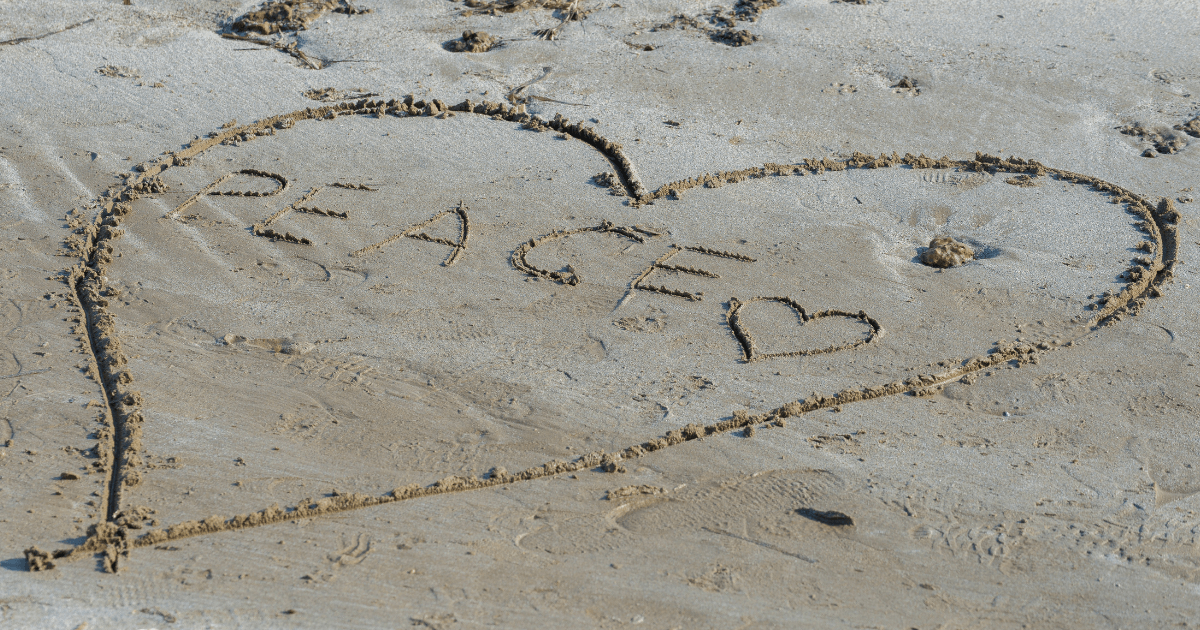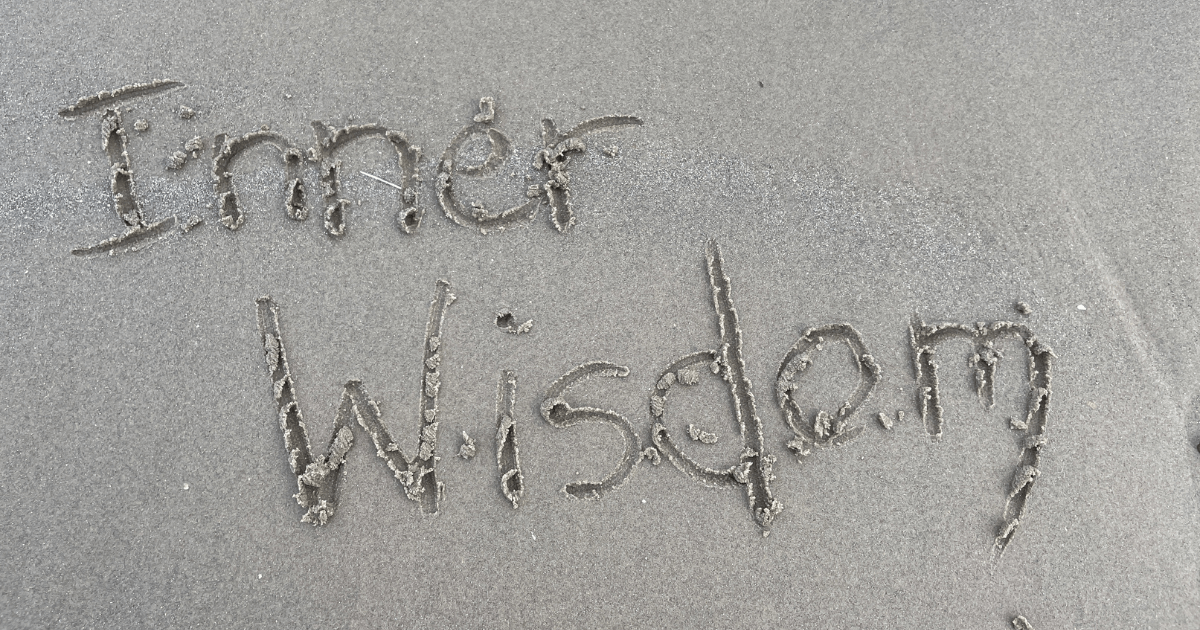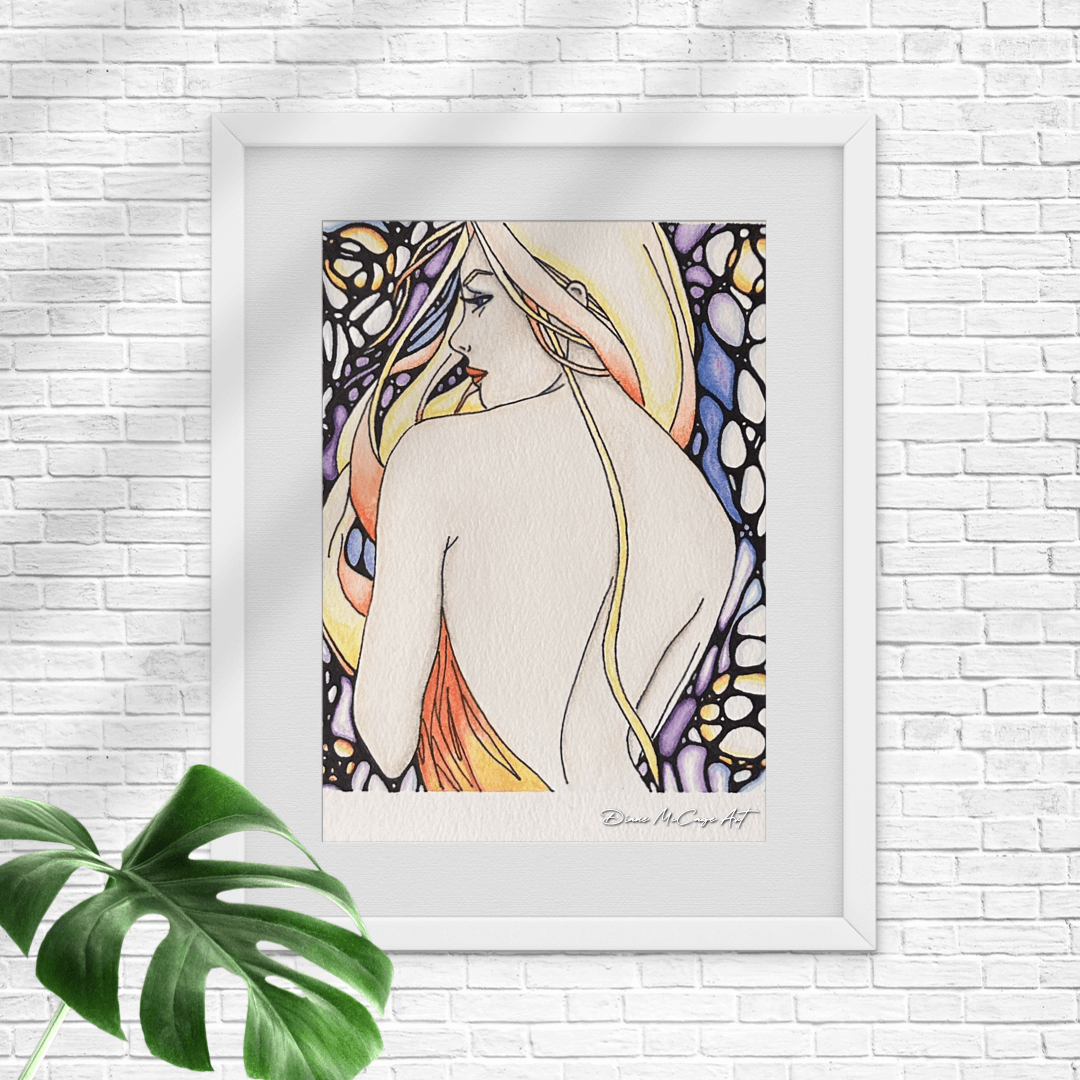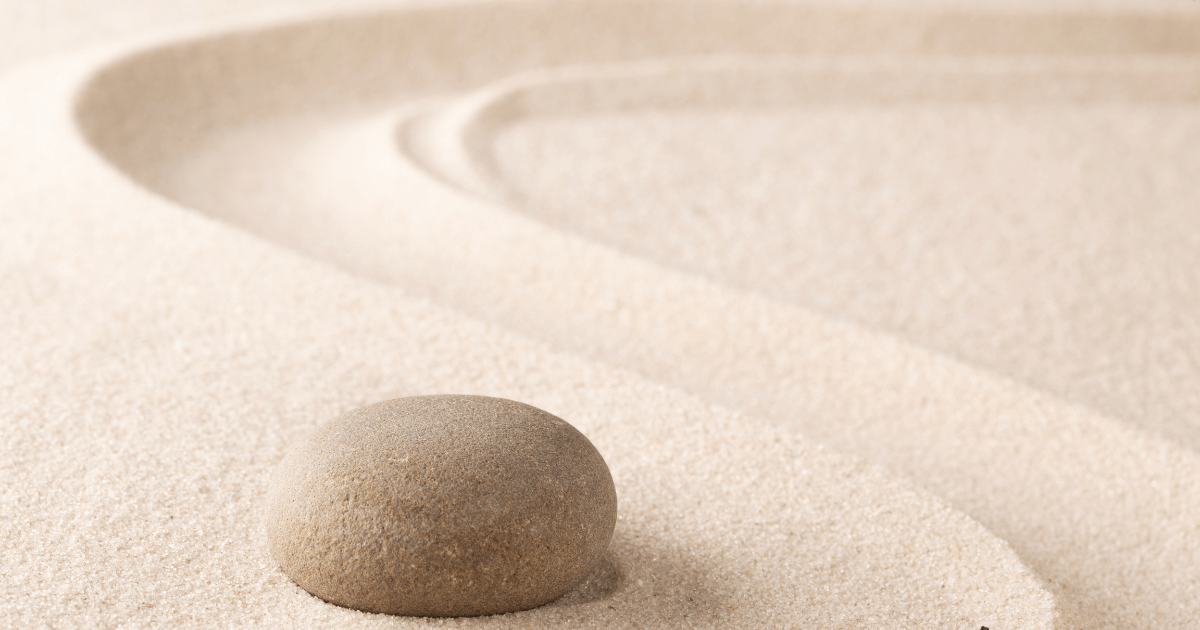Discovering Your Inner Compass: A Guide to Finding Your Personal Spiritual Truth for Trauma Survivors
My friend, I understand how lost and shaken you may feel after what you’ve endured. Our belief system is often where we derive meaning, purpose, and tools to cope with suffering. But when someone experiences emotional trauma, their entire belief system can be turned upside down. The trauma can be so jarring and inexplicable that a survivor's previous assumptions about how life works or how a benevolent Creator could allow such pain are called into question.
NOTE: Before we get too far along, I want to make it very clear that this post is written from a very neutral standpoint. I have my own personal beliefs and will not share them here because that is not the purpose of this blog post. The purpose is to provide you with a framework to evaluate your thoughts, feelings, and beliefs as they make sense for you.
I’ve been there, I know the struggle when beliefs that previously provided a reassuring framework to make sense of your world, could now be contradictions you can’t resolve. That’s why it’s so important to re-examine and adjust your belief system consciously, so you don’t experience a crisis of faith on top of all the trauma you’re working to heal.
I’ve created a workbook for you, click HERE to download the Personal Beliefs Workbook now.
It’s also crucial that you don’t cling to limiting or harmful spiritual beliefs as part of your trauma response. For example, believing you must have "deserved" what happened due to karma or your Creator’s will. Or that accepting your suffering is a "noble" spiritual practice, versus actualizing your need to heal. These beliefs only reinforce feelings of worthlessness and powerlessness learned during your trauma.
I know how destabilizing and frightening it feels to let go of belief systems imprinted since childhood. But holding onto views that may condemn or diminish your agony will only lead to more self-inflicted wounds.
You deserve to know peace.
This is a pivotal chance to search within for your own inner wisdom, unclouded by past conditioning. I know the journey seems daunting, like free-falling into the unknown. But you have the courage and resilience.
Trust that while the process may be messy and nonlinear, your spirit has been quietly gaining insights all along the way. Every time you chose gentleness over bitterness, recognized your inherent worth, surrendered false perceptions, or tapped into your body’s intuition… You uncovered a little more of your truth.
Honor those glimpses of grace. Use spiritual tools like meditation, nature, prayer, and art to deepen this precious connection to your inner compass. Its whispers will slowly clarify until you feel aligned with your authentic beliefs. You very well may have a profound rebirth.
You will find your way to make meaning from the ashes. And your unique vantage point will light the path for others. Have faith in the unfolding; you are never alone. Together we will heal, grow, and spread more light.
Examining Your Values
Our values are the timeless guiding principles we live by - what we deem important, meaningful and sacred. Examining your values provides deep insight into your personal truth.
Set aside time for self-reflection. Make a list of your top core values. Be brutally honest with yourself. Look beyond what you think you should value and identify what you truly do value.
Some questions to ask yourself:
What ideals and qualities do I admire most in both myself and others?
What causes or activities am I drawn to participate in?
What principles guide my decision-making and behaviors?
What would I fight for or defend, even at personal cost?
What type of person do I strive to become?
Once you have defined your values, look for overarching themes. Do certain values around compassion, service, wisdom recur? Do you see spiritual dimensions emerging?
Then reflect on the origin and role of your values:
What values align with your highest vision for yourself and the world?
Which feel imposed or inherited from others? Do these ring true for you?
How do you (or could you) express your values through action and lifestyle?
How might living by your values help you grow spiritually?
Lastly, pay attention to how you feel as you’re reflecting on your values as this sense is a compass pointing to your truth. Your values reveal who you are at the core apart from conditioning. An enriched understanding of your principles empowers you to walk your authentic path.
Some examples of common spiritual values:
Service - Using one's gifts to help others and make the world better
Stillness - Valuing contemplation, insight, and listening to one's heart
Authenticity - Expressing one's genuine self, not conforming to expectations
Wholeness - Seeing all aspects of oneself and life as sacred
Interconnection - Recognizing our unity with all living beings
Beauty - Appreciating creativity, artistry, and the gifts of the earth
When you contemplate your deepest values, ask yourself if you feel at peace, serene, motivated, connected? This inner tranquility signals you are touching on your truth. Continue inquiring within, listening to your heart. Have confidence that by tapping into your values, your distinctive path will reveal itself. Reflection guides us to purpose.
Making Space for Inquiry
Questioning doctrines you've been taught takes courage, as it may feel destabilizing to challenge engrained assumptions. Here are suggestions for cultivating openness and embracing uncertainty on your quest for inner truth.
Spend time in nature frequently. Observe how nature inherently allows for diverse expressions and forms of truth, rather than rigid conformity. Recognize the same diversity within your own unfolding.
Develop consistent practices of meditation, self-reflection and journaling. This quiets your inner critic and creates space for intuition to arise. Record insights without judgement.
Let go of shame or guilt for not having all the answers or for changing long-held beliefs. Remind yourself this uncertainty means you are growing. Stay open to not-knowing.
Explore spiritual texts, poetry, art, philosophy. Appreciate how others have sought meaning. Find perspectives that spark your seeking, while remembering your path is unique.
Discuss ideas openly, without needing to convince others. Listen and share authentically. Recognize you each walk your own valid spiritual journey.
Release the fear of learning something that contradicts your current beliefs. Trust in your inner compass to course-correct. This flexibility allows continual expansion.
Have empathy for those attached to limiting worldviews. They too are on their own journey. Nurture your growth while understanding their limitations.
Making space for open exploration, uncertainty and constant re-examination of assumptions creates fertile ground for your inner truth to take root and blossom. You will shed old limitations and uncover wisdom meant just for you.
Examining Your Conditioning
Before discovering your inner truth, it helps to understand how you arrived at your current belief system. Much of what we label as "truth" is actually just conditioning - beliefs imprinted on us by family, culture, society or institutions.
Reflect on moments from your past that shaped your spiritual worldview - for better or worse.
Make a list of influences like parents, teachers, churches, and books. Do not judge, just observe.
Appreciate these experiences as teachers, then strive to separate what you were taught to believe from what you know to be true for you. This discernment is challenging but necessary.
Some common forms of conditioning:
Religious indoctrination in childhood imprints beliefs we feel unable to question later, for fear of punishment/judgment.
Parental expectations impose values that may not match our inner sense of right and wrong.
Schooling rewards left-brain thinking while dismissing intuition and emotions.
Commercial culture worships money, beauty, and success versus deeper purpose and meaning.
Historically dominant traditions invalidate diverse worldviews and experiences.
The goal is not to resent or discard your background, but to filter it with newfound wisdom and compassion. Believe you have the strength and right to define truth on your terms.
Exploring Your Perspective on Life's Big Questions
Our personal philosophies on existential issues point to our spiritual beliefs. What makes sense to you about:
The meaning of life, humanity’s purpose - Why are we here? What is our individual and collective mission on this earthly plane? What gives your own life meaning amidst the mystery?
The nature of divinity/God - What is your conception of the ultimate creative force or consciousness? Does traditional religious doctrine resonate, or do you connect to something beyond definition? Or perhaps solely the material universe itself feels sacred to you?
What happens after death - Do you believe in a soul or afterlife? Is there continued evolution of consciousness, or finality? How does your belief inform how you live right now?
The origins of the universe/life - Reflect on your perspectives on cosmology, evolution, the interconnection of all living beings. How do you believe life emerged and developed?
Humanity's place in nature - Consider our species' responsibility and purpose within the web of life. Do we have a duty of stewardship? Are we part of, or apart from, the natural world?
As you contemplate these multidimensional questions, identify the roots of your current perspectives. Were they imprinted by family, culture, religion? Or do they arise from lived experience, scientific learning, philosophical seeking?
Remain open and non-judgmental. Then ask yourself… How do I feel when I contemplate these beliefs? Calm, hopeful, aligned, trusting? Or doubtful, fearful, disconnected?
Your truth likely aligns with what resonates positively in your heart when you contemplate it. Stay open as new experiences shift your understanding over time.
Integrating Your Truth into Daily Life
Discovering your personal spiritual beliefs is just the beginning. You must take action to fully integrate them into your living reality.
Start by choosing 1-2 new practices or rituals that align with your values to incorporate into your daily routine, such as:
10-15 minutes of silent meditation to strengthen self-connection
Dedicated time in nature to tap into your inner wisdom
Establishing a regular yoga practice to unify mind, body, and spirit
Keeping a gratitude journal to maintain perspective
Volunteering to give back to your community
Additionally, audit your lifestyle and make changes to align your outer world with your developing inner truth. For example:
Switching to a plant-based diet to honor interconnection with all living beings
Reducing unnecessary consumerism and purchases to practice mindfulness
Ensuring your spending and employment uphold your ethics
Decluttering physical space to reflect mental/spiritual clarity
Share insights from your journey with trusted loved ones. Discuss respective beliefs without judgment. Find common ground, which helps combat feeling alone or misunderstood.
Express your spiritual perspectives creatively through art, poetry, music dance, to unearth truths below the conscious level.
Throughout this integration process, regularly record shifts in your thinking. Note areas that feel aligned or in conflict. Nurture your growth, living your authentic truth is a nonlinear journey.
You may slide back into old paradigms out of habit, just be patient with yourself. With daily practice, your new wisdom will integrate at the cellular level. You are literally creating new neural pathways as you deepen your understanding of your own inner truth.
In this way, your beliefs shape and affirm your reality.
Addressing Common Misconceptions
When exploring spirituality outside of mainstream conventions, there are some myths and misconceptions that commonly arise. Being aware of these can help you stay centered in your journey.
You do not need to have it all figured out. - Questioning conditioning is a lifelong process as we incrementally unfold in self-understanding. It's about the seeking, not having ultimate answers. Stay open and gently hold the unknown.
Trust your intuition - Spiritual truth often resonates in places beyond rational thought and language. Have faith in impressions arising from your inner wisdom.
You need not reject all inherited traditions - Take what still nurtures, release the rest. For example, appreciate the community of your upbringing, while thinking independently.
Being spiritual does not mean being impractical - Integrate both intuitive and logical wisdom in grounded ways. Do not neglect physical, emotional and mental wellbeing.
There are many diverse spiritual paths - Absolutism around one right path is likely conditioning. Respect the unity beneath different journeys.
This inner work connects you to humanity - Your life experience gives you empathy and insights to share. Evolving yourself evolves the collective.
You need not label yourself - This exploration is about living authentically, not meeting external definitions. Let your values steer.
Growth can feel destabilizing - Have compassion for yourself and others during difficult transitions. The pain is temporary, breakthroughs are ahead.
Trust your inner compass. You contain all the wisdom and strength needed to walk your spiritual path with courage and grace.
Let Your Journey Begin
My friend, we stand together on the brink of your life-changing journey within. I see your hesitation, this road into the depths of your belief system seems daunting and uncertain.
The key to staying true to yourself is simply being you. All your twisty questioning, charged awakenings, instances of profound skepticism, and breathtaking rediscoveries, these are what make you beautifully human. Your unique experiences are converging to form a distinctive pattern, unveiling what is called your truth.
Trust me, I know it takes courage to take a deep dive into your conditioning. But once you do, and you’re certain about what your truth is, your vision clears. A wealth of hard-earned wisdom surrounds you, and your authentic self comes into razor-sharp focus.
Now here's the magical part… In healing your own fractured spirit, you tap into the shared heart of humanity. We're all navigating with you, lending our light. And by unfolding your wings, you lift others higher too.
In the process of transformation, you’ll come to a powerful realization: your authenticity holds immense spiritual value. Through questioning, dismantling, and reconstructing beliefs, you’ll shape a spiritual journey that is entirely your own. Embracing the insights gained from your trauma fosters healing and deepens your connection with your inner self and the universe. The internal compass, once obscured by trauma, now guides you toward an authentic spiritual truth… A guiding light illuminating your path with unwavering clarity.
My friend, remember that your authenticity is your greatest strength. Cheers to you, your journey, and finding your own personal truth!











